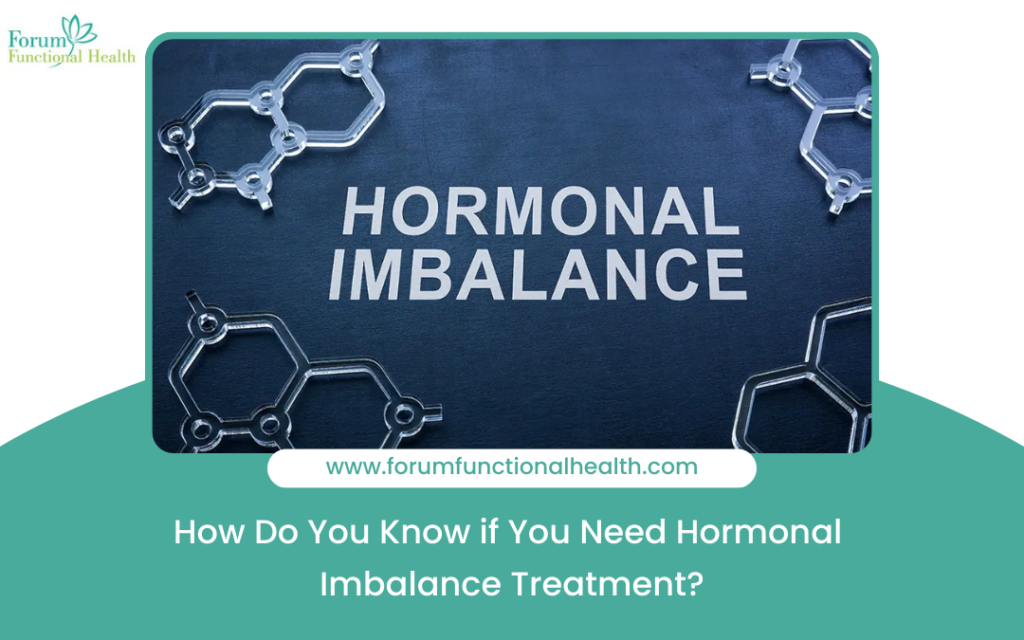How Do You Know if You Need Hormonal Imbalance Treatment?

Hormonal imbalances can significantly impact a woman’s quality of life, affecting everything from mood and energy levels to reproductive health. But how do you know when it’s time to seek hormonal imbalance treatment? In this article, we’ll explore the signs of hormonal imbalance, the importance of getting tested, and the available treatment options to restore balance and well-being.
Understanding Hormonal Imbalance
Hormonal imbalances occur when there is too much or too little of certain hormones in the body. Common hormones affected include estrogen, progesterone, testosterone, and thyroid hormones. These imbalances can lead to a variety of symptoms, especially hormonal imbalance in women, such as:
- Irregular periods or missed periods
- Severe PMS or PMDD
- Unexplained weight gain or loss
- Mood swings, anxiety, or depression
- Fatigue and low energy
- Hot flashes or night sweats
- Difficulty sleeping
- Reduced libido or sexual dysfunction
If you’re experiencing any of these symptoms, it may indicate a need for hormonal imbalance treatment. Recognizing these signs early can help you take proactive steps toward regaining your health.
The Importance of Hormonal Imbalance Testing
One of the first steps in determining whether you need treatment is to undergo a hormonal imbalance test. This test can provide valuable insights into your hormone levels and help identify specific imbalances. Hormone testing typically includes blood, saliva, or urine tests to measure the levels of key hormones in your body.
Testing is crucial because it allows healthcare professionals to develop a personalized treatment plan tailored to your unique hormonal needs. If you suspect you have a hormonal imbalance, consider scheduling a consultation at a Functional Health Center in Texas like the Forum Functional Health Center.
Signs That You May Need Treatment
If you’re still unsure whether you require hormonal imbalance treatment, consider these additional factors:
1. Family History
If hormonal issues run in your family, you might be more prone to experiencing similar challenges. Family history can indicate a genetic predisposition to conditions like polycystic ovary syndrome (PCOS) or thyroid disorders.
2. Lifestyle Factors
Poor diet, lack of exercise, and high stress levels can contribute to hormonal imbalances. If your lifestyle is not supportive of your overall health, it may be time to reassess your habits and consider seeking help.
3. Age
As women age, hormonal fluctuations are natural, especially during perimenopause and menopause. However, if these changes lead to disruptive symptoms, it may indicate a need for treatment.
4. Response to Previous Treatments
If you have already sought treatment for hormonal issues and are still experiencing symptoms, it may be time to explore different options or further testing.
Treatment Options for Hormonal Imbalance
If testing confirms a hormonal imbalance, various treatment options can help restore balance and improve your quality of life. Here are some effective approaches:
1. Lifestyle Changes
Making lifestyle adjustments is often the first step toward correcting hormonal imbalances. This includes:
- Eating a balanced diet: Focus on whole foods, fruits, vegetables, lean proteins, and healthy fats.
- Regular exercise: Aim for at least 150 minutes of moderate exercise each week to help balance hormones and manage weight.
- Stress management: Incorporate relaxation techniques such as yoga, meditation, or deep breathing exercises.
2. Supplements for Hormonal Imbalance
Certain supplements for hormonal imbalance can support hormone regulation. Some popular options include:
- Maca Root: Known for its potential to balance estrogen and testosterone levels.
- Evening Primrose Oil: Often used to alleviate PMS symptoms.
- Vitamin D: Plays a crucial role in hormone regulation and overall health.
When considering vitamins for hormonal imbalance, consult a healthcare professional to determine the best options for your needs.
3. Hormone Replacement Therapy (HRT)
For some women, hormone replacement therapy may be an effective solution. HRT involves supplementing the body with hormones to relieve symptoms associated with imbalances. Discussing this option with your healthcare provider can help determine if it’s right for you.
4. Natural Remedies
Many women find relief from hormonal symptoms through natural remedies such as herbal supplements or acupuncture. Discussing these options with a holistic practitioner can offer additional insights into managing your symptoms.
5. Comprehensive Treatment Programs
At a Forum Functional Health Center in Texas, such as the Forum Functional Health Center, you can access comprehensive treatment programs that integrate multiple approaches to restore hormonal balance. This may include personalized nutrition plans, lifestyle coaching, and regular monitoring of your hormone levels.
Conclusion: Taking Control of Your Health
If you suspect you are experiencing hormonal imbalances, it’s essential to take action. From understanding the symptoms to undergoing testing and exploring treatment options, you have the power to reclaim your health. Don’t hesitate to contact a healthcare professional at a Functional Health Center in Texas to discuss your symptoms and get the help you need.
Remember, your well-being is worth investing in. You can find the balance necessary for a fulfilling life through lifestyle changes, supplements, or professional treatment. Contact Forum Functional Health in Texas.
Read More Details: Comprehensive Guide to Erectile Dysfunction Treatments: From Temporary to Permanent Solutions
